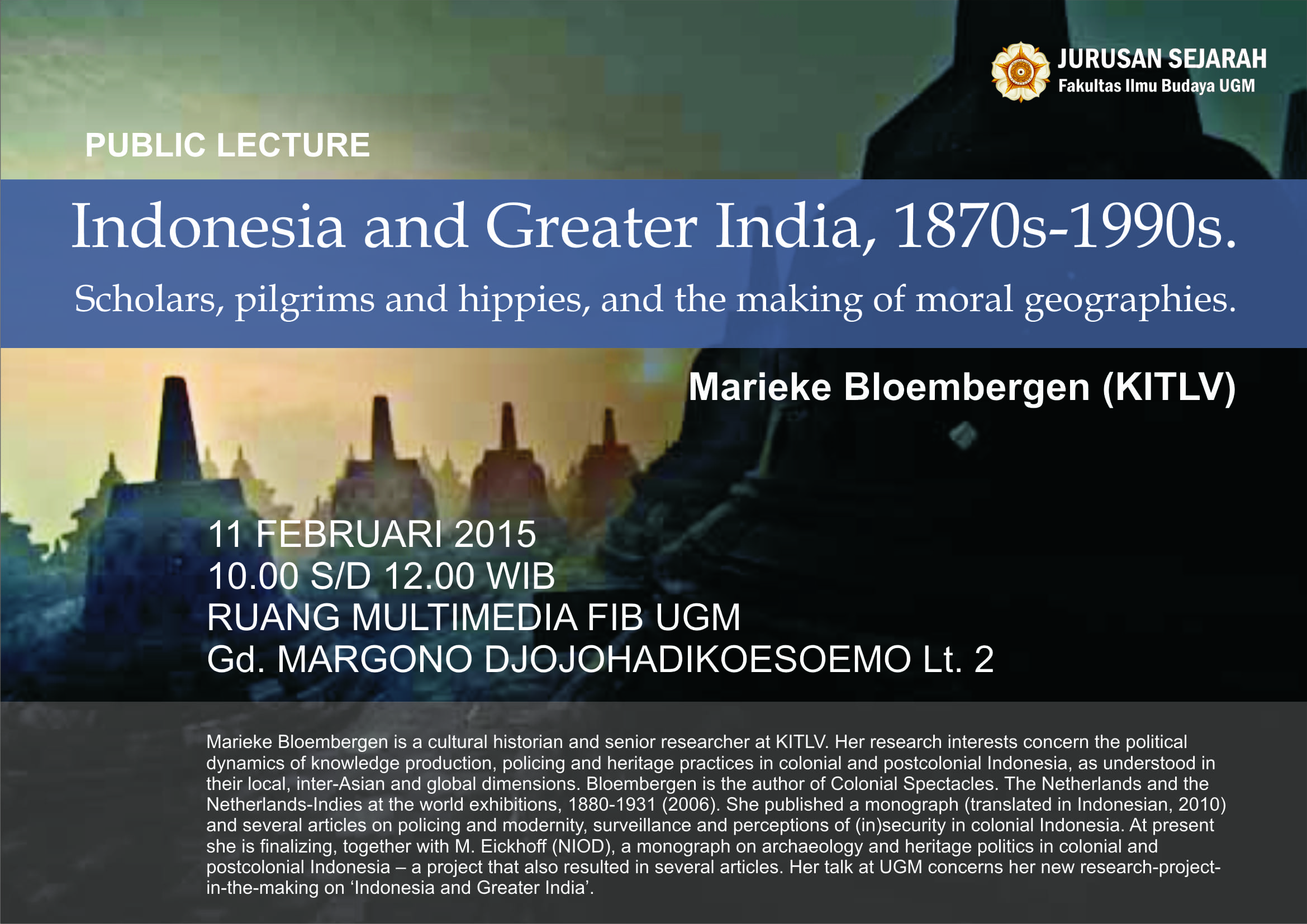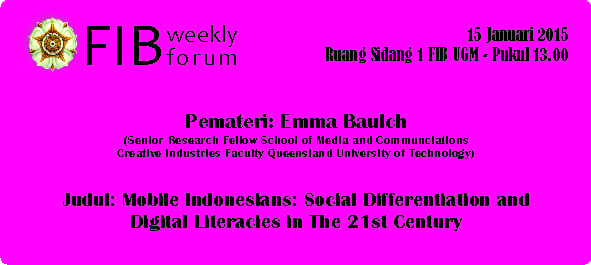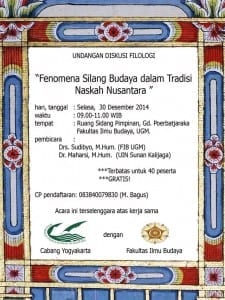Indonesia and Greater India, 1870s-1990s
Scholars, pilgrims and hippies, and the making of moral geographies
Dr. Marieke Bloembergen
This lecture asks how scholarly and spiritual knowledge networks – archaeologists, art-historians and linguists since the 1870s, the theosophical society and Hindu-Buddhist revivalist movements since the 1880s, and the hippietrail since the 1960s – have shaped moral and spatial ideas of Greater India, and enabled the inclusion of predominantly Islamic Indonesia. I will, by example, focus on cases of knowledge exchange between the various networks, and on the phenomenon of re-sacralization. Taking the eighth century Buddhist shrine cum heritage site Borobudur as a starting point, the paper analyses how scholarly and spiritual knowledge networks across the Bay of Bengal, and globally, helped re-sacralizing Indonesia’s historical remains into sites of Indianized heritage, of Indianized universal art and of religious revivalism – in ways that went beyond the interest of the state or state-supported institutions, and inside and outside Indonesia.




